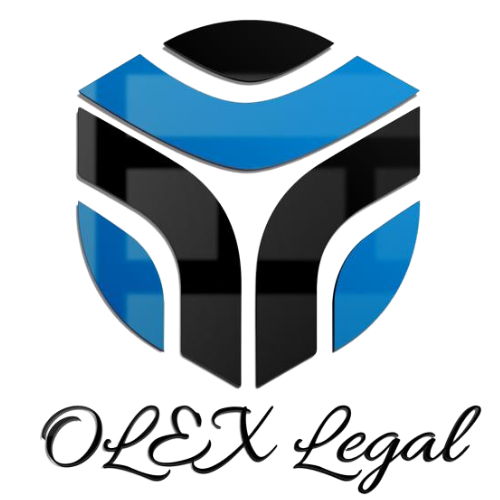
04 Mar Understanding and Managing Restrictive Covenants in Alberta
In the realm of property ownership and employment in Alberta, restrictive covenants play a crucial role in shaping the landscape. These legal agreements, often embedded within the deeds of properties or employment contracts, impose specific restrictions on the use of land or the conduct of business. They are pivotal in maintaining the character of communities, protecting business interests, and ensuring the aesthetic and functional coherence of development projects. However, navigating the complexities of restrictive covenants, especially when it comes to their amendment or removal, presents a significant challenge for landowners, developers, and employees alike. This guide aims to demystify restrictive covenants in Alberta, offering detailed insights into their nature, enforcement, and the legal pathways available for those seeking to amend or remove them.
What are Restrictive Covenants?
At its core, a restrictive covenant is a legal obligation embedded in the title of a property or a clause within an employment contract that restricts certain actions or uses. In the context of property, these covenants are designed to guide the development and use of land, ensuring it aligns with specific aesthetic, structural, or functional standards. For instance, a restrictive covenant may limit the color of houses in a neighborhood, the type of fencing allowed, or prohibit certain types of businesses from operating within a certain area.
Legally, restrictive covenants in Alberta are recognized and enforced through their registration at the Alberta Land Titles Office. This formal recognition binds not only the current owner of the property but also any future owners, making it essential for potential buyers to be aware of any such covenants attached to their prospective properties. In employment scenarios, restrictive covenants serve to protect business interests by limiting an employee’s actions both during and after their tenure with the company, typically through non-compete, non-solicitation, or confidentiality agreements.
The role of restrictive covenants extends beyond mere restrictions; they are pivotal in shaping the character and functionality of communities and business landscapes. By understanding the foundational aspects of these covenants, stakeholders can navigate their implications more effectively.
Types and Effects of Restrictive Covenants on Property
Restrictive covenants can take many forms, each designed to preserve the quality and intended use of properties within specific areas. These covenants can dictate a wide range of restrictions, from the aesthetic choices like the color of a house or the materials used for roofing, to more functional aspects such as water drainage systems, the grading of land, or the minimum distance a structure must be from the road. Additionally, they may govern the density of development, for example, by limiting the number of homes that can be built per lot, or even prohibit certain types of activities, such as keeping livestock on the property.
The effects of these covenants on property owners are profound. On one hand, they help maintain a uniform standard within neighborhoods, protecting property values and ensuring that individual actions do not detract from the community’s overall aesthetic or functional coherence. On the other hand, they can impose significant limitations on owners’ autonomy over their property, potentially restricting their ability to modify their homes or land to suit their personal needs or preferences.
The “running with the land” nature of restrictive covenants means that these conditions are not just a matter for the current property owner but for all future owners as well. This enduring quality ensures that the original intent behind the restrictions, such as maintaining a certain character of a neighborhood or protecting environmental features, is preserved over time. However, it also means that potential buyers must conduct thorough due diligence to understand any restrictions that may apply to a property they wish to purchase.
Understanding the types of restrictive covenants and their potential impacts is crucial for anyone involved in the buying, selling, or development of property in Alberta. This knowledge enables property owners and developers to make informed decisions and navigate the legal landscape effectively, ensuring compliance while also advocating for their interests.
The Permanence of Restrictive Covenants
A distinctive feature of restrictive covenants is their permanence. Unlike many other legal conditions or agreements that may have explicit expiry dates, restrictive covenants, unless specifically stated otherwise, do not automatically expire. This characteristic means that covenants, once registered against a property’s title, continue to impact the land and its owners indefinitely. This permanence can preserve the character and intentions of a development over generations but also poses challenges for owners seeking to adapt to changing circumstances or personal needs.
It’s not uncommon to find restrictive covenants that were put in place decades ago still affecting properties today. These historical covenants can sometimes seem out of step with contemporary values or needs, such as restrictions that no longer serve the community’s interests or overly restrictive conditions that hamper reasonable development or use of the property. The enduring nature of these covenants means that, without action, they can continue to impose these outdated restrictions on current and future owners.
Despite their potential to last indefinitely, it is possible to modify or discharge restrictive covenants under certain conditions. The process, however, involves legal proceedings and, often, the agreement of affected parties, which can be particularly challenging when the covenant impacts a large number of properties or when the original parties to the covenant are no longer available. This complexity underscores the importance of understanding not only the specific terms of any restrictive covenants affecting a property but also the mechanisms available for those seeking change.
This permanence highlights the need for diligence and foresight when purchasing property or planning development in Alberta. Potential buyers should thoroughly investigate any restrictive covenants attached to a property, considering not only their immediate impact but also how they may affect future plans or the property’s resale value. For existing property owners, understanding the process for amending or removing restrictive covenants is crucial for navigating the legal landscape and achieving desired changes to their property’s use or development potential.
Consequences of Breaching Restrictive Covenants
Breaching a restrictive covenant can lead to significant legal and financial consequences for property owners in Alberta. Understanding the potential outcomes of such breaches is crucial for anyone subject to these covenants, as it emphasizes the importance of compliance and the need for due diligence before undertaking any actions that might contravene the agreement.
Legal Actions and Court Orders:
When a breach of a restrictive covenant occurs, the parties entitled to enforce the covenant—often neighbors or a homeowners’ association—may seek legal remedies. These remedies can include seeking a court order to enforce compliance with the covenant. The court’s decision could mandate a range of actions, from the removal of unauthorized structures to alterations in property appearance to align with the covenant’s requirements.
For instance, if a property owner builds a structure that violates a height restriction or uses materials that are not permitted under the covenant, they may be ordered to modify or remove the structure at their own expense. Similarly, if the breach involves unauthorized commercial activities in a residential area, the property owner may be required to cease those activities.
Financial Implications:
The financial implications of breaching a restrictive covenant can be substantial. Property owners may face legal costs associated with defending against enforcement actions, as well as the costs of complying with court orders. In some cases, the breach could also negatively impact the property’s value or its marketability, as potential buyers may be deterred by the legal complexities or restrictions associated with the covenant.
Preventative Measures:
To avoid the consequences of breaching restrictive covenants, property owners should take several preventative steps:
- Thorough Review: Before purchasing property or undertaking any significant changes to a property, thoroughly review the title and any covenants attached to it. Understanding the specifics of the covenant is crucial to ensuring compliance.
- Legal Advice: Seek legal advice from professionals experienced in property law in Alberta, particularly those with expertise in restrictive covenants. They can provide guidance on the covenant’s implications and strategies for compliance or amendment.
- Open Communication: Maintain open lines of communication with other property owners or bodies entitled to enforce the covenant. In many cases, disputes can be resolved through dialogue and negotiation, avoiding the need for legal action.
Legal Assistance with Restrictive Covenants
For property owners in Alberta facing challenges with restrictive covenants, whether considering amendments, removal, or dealing with potential breaches, seeking professional legal assistance is paramount. The complexities of property law and the specific legal framework surrounding restrictive covenants necessitate the expertise of experienced real estate lawyers.
Role of Real Estate Lawyers:
- Assessment and Advice: Real estate lawyers can provide a comprehensive assessment of the restrictive covenant in question, offering clear advice on its implications for your property and your rights. They can help you understand the feasibility of amending or removing a covenant and the likely outcomes of any legal action.
- Navigating Legal Processes: Whether it’s applying for a court order to amend or remove a covenant, defending against a breach accusation, or negotiating with other affected parties, lawyers are equipped to guide property owners through these processes. Their expertise ensures that all legal requirements are met, and the best possible case is presented.
- Conflict Resolution: Lawyers can also assist in resolving disputes related to restrictive covenants outside of court, through negotiation and mediation. This approach can save time, reduce costs, and often leads to more amicable outcomes.
Preparation for Legal Consultation:
To make the most of your consultation with a real estate lawyer, prepare by gathering all relevant documents, including the property title, any existing legal correspondence related to the covenant, and details of the specific concerns or objectives you have regarding the covenant. Being well-prepared can help your lawyer provide more accurate and tailored advice.
FAQs about Restrictive Covenants in Alberta
1. Are restrictive covenants enforceable in Alberta? Yes, restrictive covenants are enforceable in Alberta when properly prepared and registered with the Alberta Land Titles Office. They must be clear in intention and comply with legal standards to be enforceable against current and future property owners.
2. How do you remove a restrictive covenant in Alberta? Removing a restrictive covenant typically requires a court application. The court will consider the covenant’s impact on the parties involved and the broader community. Successful removal often depends on demonstrating that the covenant no longer serves its original purpose or that it unfairly restricts the property’s use.
3. Can you negotiate a restrictive covenant? Yes, it’s possible to negotiate a restrictive covenant either before it’s registered or as part of an agreement to amend or remove an existing covenant. Negotiations usually involve the parties who benefit from and are burdened by the covenant.
4. What are the effects of a restrictive covenant? Restrictive covenants can limit the use and development of a property, impacting everything from the design and appearance of buildings to the types of activities that can take place on the land. They are intended to protect property values and maintain the character of a neighborhood.
5. Do restrictive covenants expire in Alberta? Not automatically. Unless a covenant specifies an expiry date, it continues to run with the land indefinitely. Some covenants may include terms for expiry or conditions under which they become void, but this is not common.
6. How can I find out if there’s a restrictive covenant on my property? Restrictive covenants are registered with the Alberta Land Titles Office and are noted on the property’s title. Property owners can obtain a copy of their property title to identify any registered covenants.
7. What happens if you violate a restrictive covenant in Alberta? Violating a restrictive covenant can lead to legal action by the parties entitled to enforce the covenant. Remedies may include a court order requiring the violator to cease the offending use, remove unauthorized structures, or otherwise comply with the covenant’s terms.
8. Can a restrictive covenant be challenged in Alberta? Yes, restrictive covenants can be challenged on various grounds, including that they are unclear, no longer relevant, or impose an unreasonable restriction on the use of the property. Challenges typically require legal proceedings.
9. Who can enforce a restrictive covenant? A restrictive covenant can be enforced by any party who benefits from the covenant. This often includes neighboring property owners or a homeowners’ association.
10. Are there alternatives to removing a restrictive covenant? Yes, in some cases, parties may agree to amend a covenant to make it more suitable to current conditions or needs, rather than removing it entirely. Amending a covenant also requires legal proceedings but may be met with less resistance than removal.



















































